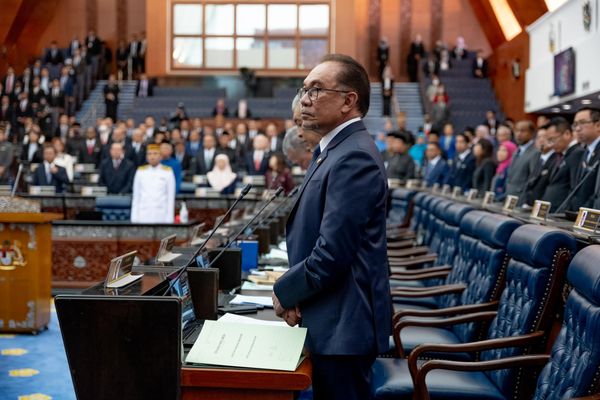KUALA LUMPUR, July 22 — Sabah Chief Minister Datuk Seri Hajiji Noor and Sarawak Premier Tan Sri Abang Johari Tun Openg are expected to join the national delegation for the Malaysia-Indonesia annual consultation in Jakarta on July 29, where discussions will include matters related to the Sulawesi Sea.
Prime Minister Datuk Seri Anwar Ibrahim said the presence of the two leaders is crucial as any agreement related to the country’s borders must receive approval from the two state governments, while also allowing their views to be conveyed directly to Indonesia.
“This matter must be agreed to by the Sabah government. Therefore, on July 29, we will continue discussions in Jakarta, and the Sabah chief minister will be part of the delegation, as Sabah’s consent is required whenever there are discussions regarding the border,” he said.
“Official bilateral meetings and joint commissions are formal platforms, and for any official meeting involving Singapore or Indonesia, I always make it a rule to invite the Sarawak premier and the Sabah chief minister to be part of the delegation.
"This will also be the case for the meeting on July 29,” he said.
He said this in response to a question from Beluran MP Datuk Seri Dr Ronald Kiandee on whether the 2002 International Court of Justice (ICJ) decision regarding the sovereignty of Ligitan and Sipadan islands could affect the determination of the maritime boundary between Malaysia and Indonesia in the Sulawesi Sea, including the sovereignty of blocks ND6 and ND7.
Anwar said the maritime boundary issue in the Sulawesi Sea was raised in his meeting with Indonesian President Prabowo Subianto, who proposed a joint solution in the spirit of two friendly countries.
However, the prime minister stressed that no final agreement had been reached as discussions were still ongoing, and the Sulawesi Sea Treaty signed between Malaysia and Indonesia in 2023 included a non-disclosure clause.
“He (Prabowo) and I hope we can reach a compromise because this is a friendly country. However, after 60 years of mismanagement, even though most matters are agreed upon, there are still aspects of the demarcation he disagrees with.
"So, what can we do when dealing with a friendly country? We will continue negotiating, but our stance remains firm."
Anwar also stressed that Malaysia’s stance remains consistent in resolving the maritime boundary issue through negotiations, without jeopardising the good relations between the two nations.
“In terms of cooperation, there should be no tension or conflict between the Indonesian and Malaysian navies. From the records of previous bilateral meetings with Indonesian leaders, the approach has been consistent, and I will continue in the same spirit,” he said.
Answering a supplementary question from Paya Besar MP Datuk Mohd Shahar Abdullah on economic cooperation in the ND6 and ND7 areas, Anwar said potential projects there have been delayed due to the unresolved border status with Indonesia.
“We do not agree to economic cooperation that might imply we recognise the presence or interests of other countries in our area... except for projects that we undertake ourselves. That is why matters concerning ND6 and ND7 have been somewhat stalled, as we cannot proceed.
“If we proceed too hastily, it could turn into a situation like the border dispute between Thailand and Cambodia. We must avoid that, especially as Indonesia maintains very good relations with Malaysia.”
Anwar said while Malaysia and Indonesia enjoy strong diplomatic, cultural and economic ties, the principle of sovereignty remains Malaysia's top priority in all negotiations.
“They also understand that, as a sovereign nation, we cannot concede anything, and the negotiation process must continue."
— Bernama




